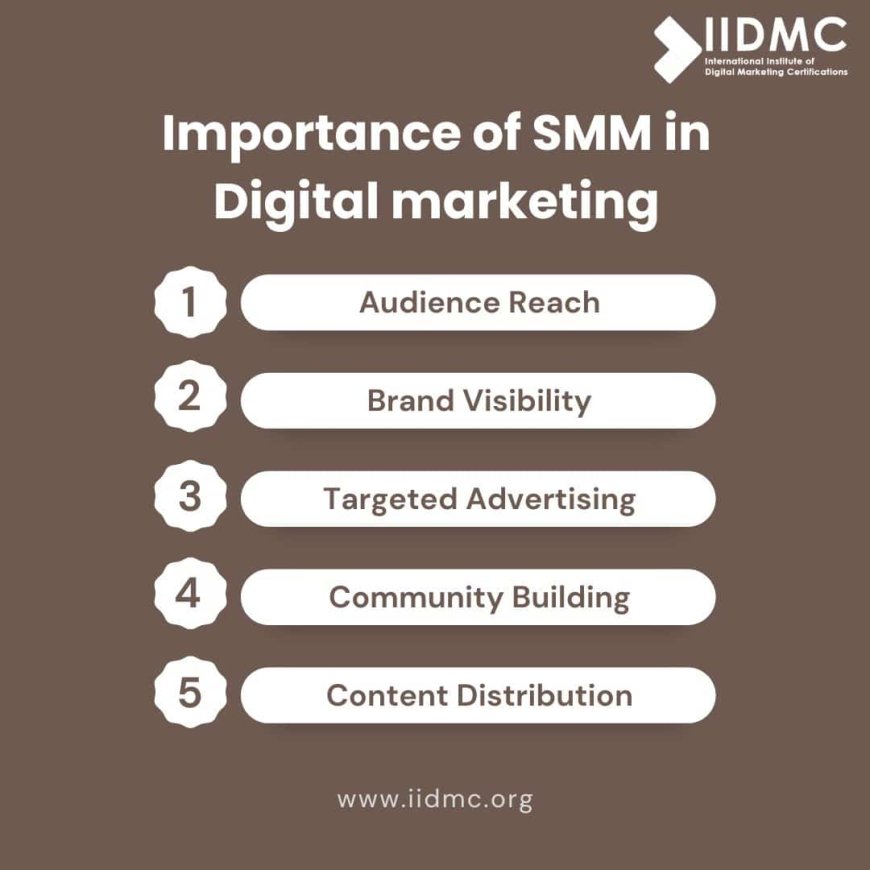Comparing Social Media Marketing vs Digital Marketing
Discover the distinctions between social media marketing and digital marketing. Explore their benefits and choose the best strategy for your business.

The rise of social media in digital marketing has fundamentally transformed how businesses engage with their audience. Platforms like Facebook, Twitter, Instagram, and LinkedIn have become indispensable tools for brands to connect directly with customers, enhance brand visibility, and drive sales. Before social media, digital marketing primarily relied on traditional channels such as email, Google ads, and SEO. However, social media's unique ability to facilitate two-way communication has revolutionized marketing by enabling meaningful interactions between brands and consumers, fostering trust and loyalty.
Social media marketing vs digital marketing are often used interchangeably, but they encompass different strategies. Digital marketing is a broader term that encompasses all online marketing efforts, including social media marketing, email marketing, search engine optimization (SEO), and more. On the other hand, social media marketing specifically focuses on utilizing social media platforms to connect with the audience, build brand awareness, and drive engagement. While digital marketing covers a wide range of online channels, social media marketing zeroes in on the power of social networks to reach and engage target audiences effectively.
Importance of both SMM and DM in modern business strategies
Together, SMM and DM create comprehensive strategies that reach, engage, and convert customers in the digital age.
-
Audience Reach: Social media marketing (SMM) reaches people on platforms like Facebook and Instagram, while digital marketing (DM) expands reach across search engines, websites, and emails.
-
Brand Building: SMM engages directly with the audience, while DM reinforces brand messaging through content and emails.
-
Targeted Advertising: SMM targets users within social media platforms, while DM targets specific demographics and interests across digital channels.
-
Customer Engagement: SMM fosters real-time interactions, while DM delivers personalized content and support.
-
Lead Generation and Conversion: SMM attracts potential customers, while DM nurtures leads through email and retargeting campaigns.
-
Data Analysis and Optimization: Both SMM and DM provide data for measuring campaign performance and refining strategies.
Risks associated with both social media marketing and digital marketing
Both social media marketing (SMM) and digital marketing (DM) come with their own set of risks
Reputation Damage: In SMM, negative comments, reviews, or viral backlash can harm a brand's reputation if not addressed promptly and effectively. Similarly, Digital marketing campaigns that come across as intrusive or spammy can tarnish a brand's image and lead to negative perceptions among consumers.
Data Privacy Concerns: Both SMM and DM involve the collection and use of consumer data. Mishandling or misuse of this data can lead to privacy breaches, regulatory fines, and loss of consumer trust. Businesses must adhere to data protection laws and maintain transparency regarding data usage practices.
Platform Dependency: Relying too heavily on a single social media platform for SMM or a specific digital channel for DM can pose risks if the platform changes its algorithms, and policies, or experiences downtime. Diversifying marketing efforts across multiple platforms can mitigate this risk.
Ad Fraud and Click Fraud: In DM, fraudulent activities such as click fraud (artificially inflating ad clicks) and ad fraud (fake impressions or clicks) can waste advertising budgets and skew campaign performance metrics. Implementing robust fraud detection measures and monitoring campaigns closely can help mitigate this risk.
Cybersecurity Threats: Both SMM and DM involve online interactions and transactions, making businesses vulnerable to cybersecurity threats such as phishing attacks, malware, and data breaches. Implementing cybersecurity best practices, including encryption, secure payment gateways, and employee training, is essential to safeguard against these risks.
Negative Publicity and Crisis Management: Social Media Marketing platforms provide a platform for the rapid dissemination of information, making businesses susceptible to negative publicity or crises. Developing a robust crisis management plan and maintaining open communication with stakeholders can help mitigate the impact of such incidents.
Compliance Risks: SMM and Digital Marketing campaigns must comply with various regulations and guidelines, including advertising standards, data protection laws, and industry-specific regulations. Non-compliance can result in legal consequences, fines, and damage to reputation.
Importance of SMM in DM
Social media marketing is integral to digital marketing as it offers unparalleled audience reach, engagement, and brand visibility through targeted advertising, customer insights, viral content distribution, and community building. By incorporating SMM into Digital Marketing strategies, businesses can leverage social media platforms to enhance brand awareness, cultivate customer relationships, and drive meaningful interactions, ultimately leading to increased brand loyalty and business success.

What are the key differences between Social Media Marketing and Digital Marketing
Scope: Digital marketing is a broader term that encompasses all online marketing efforts, including social media marketing, search engine optimization (SEO), email marketing, content marketing, pay-per-click (PPC) advertising, and more. On the other hand, social media marketing specifically focuses on utilizing social media platforms to promote products or services.
Platforms: Social media marketing is confined to social media platforms such as Facebook, Instagram, Twitter, LinkedIn, YouTube, and others. Digital marketing, however, includes a wider range of channels beyond social media, such as websites, blogs, search engines, email, mobile apps, and online advertisements.
Objectives: While both aim to increase brand awareness, drive traffic, and generate leads or sales, social media marketing often emphasizes engagement, community building, and customer interaction. Digital marketing, being more comprehensive, can include a wider array of objectives tailored to specific channels and target audiences.
Audience Targeting: Social media marketing allows for highly targeted advertising based on user demographics, interests, behaviours, and interactions within the platform. Digital marketing strategies may also utilize targeting across various online channels beyond just social media.
Content Formats: Social media marketing heavily relies on visual and interactive content formats like images, videos, stories, and live streams to engage users within the platforms' environments. Digital marketing content can vary more widely in format and may include blog posts, infographics, ebooks, podcasts, webinars, and more.
social media marketing is a subset of digital marketing, focusing specifically on utilizing social media platforms for promotional purposes. Digital marketing encompasses a broader range of online marketing tactics and channels beyond just social media. Both are essential components of a comprehensive online marketing strategy, and the choice between them depends on the specific goals, target audience, and resources of a business.
Social media marketing and digital marketing are distinct but complementary strategies in modern business. SMM focuses on social media platforms, fostering engagement, building communities, and increasing brand visibility. DM includes various online marketing efforts, such as email marketing, SEO, content marketing, and PPC advertising, reaching audiences beyond social media. Both SMM and DM are essential in modern business, offering advantages in audience reach, brand building, advertising, engagement, lead generation, and data analysis. However, they also come with risks like reputation damage, data privacy concerns, and compliance issues. Choosing between SMM and DM depends on business goals, target audience, and resources. Integrating both allows businesses to maximize their online presence, engage effectively, and drive growth.



























